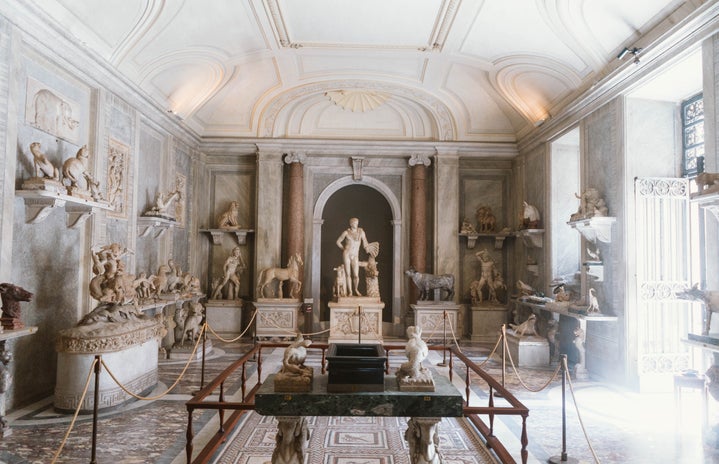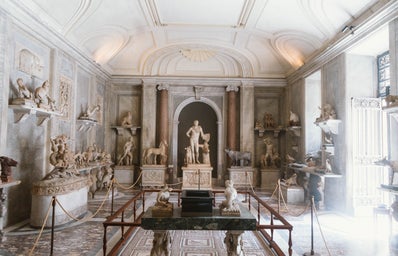In the earlier years of the 19th century, at the height of the Ottoman Empire, Thomas Bruce, 7th Earl of Elgin, colloquially known as Lord Elgin, oversaw the decade-long process of transporting the Parthenon marbles from Athens to London shortly after acquiring a firman or permit from the Sultan of Turkey in 1801. The Parthenon marbles, which were made between 447BC and 432BC, are ancient treasures that once decorated the temple of Athena in Athens, and are regarded as one of the finest examples of Greek architecture. More than 200 years later, the Greeks want their sculptures back.
Some time in late November of this year, a diplomatic row broke out between Greece and Britain. This was after British prime minister, Rishi Sunak, abruptly cancelled a meeting with his Greek counterpart, Kyriakos Mitsotakis, where they had agreed to discuss (among other things) the fate of these artefacts. Mitsotakis did not take kindly to the cancellation, and he expressed his ‘annoyance’ at the British prime minister for having pulled out at the last minute: ‘Anyone who believes in the rightness and justice of his positions is never afraid of confronting arguments.’
The dispute over the marbles’ acquisition has been occurring for the past forty years as part of a Greek effort to bring the marbles back to their rightful home in the Acropolis Museum, to be displayed with the other remaining sculptures in the collection. Moreover, Greek authorities have questioned the legal legitimacy of Lord Elgin’s original permit, claiming that the then British ambassador of the Ottoman Empire, ‘…used illicit and inequitable means to seize and export the Parthenon sculptures, without real legal permission to do so, in a blatant act of serial theft.’
On the other hand, the Trustees of the British Museum have repeatedly defended their retention of the Parthenon marbles, claiming that Elgin’s ‘actions were thoroughly investigated by a Parliamentary Select Committee in 1816 and found to be entirely legal’. One cannot help but question, however, whether Britain’s claims of a ‘lawful’ accession can be justified under laws that were grounded on anachronistic morals. The museum’s chairman, George Osbourne, also addressed this matter publicly with a statement claiming that they look forward to a more cooperative partnership with Greece as there is no legal argument to be made. In response to Mitsotakis’ frustrations, Sunak asserted that the sculptures cannot be returned as a ‘matter of law’.
The British Museum has had a long-standing history of contested items in their repository, with the Parthenon marbles only making up a small fraction of all the other objects that have been acquired, through various means, from different parts of the world. The polarised discourse in media and public spheres has also caused quite a ruckus, as users take to Twitter/X to express their discontent with the British government’s refusal to grant the marbles’ permanent return to Athens. Twitter/X user @NotTimorous says, ‘If I buy something legally and it turns out to be stolen, I don’t expect to then keep my legally acquired stolen goods.’ While others, such as British art critic, Jonathan Jones, posited that the British Museum should ‘hold its ground’ and that ‘people should shut up and look at these works of art, instead of turning them into a trite talking point’. He pointed out that to return the Parthenon marbles to ‘modern’ Greece, which claims no ‘ideological inheritance’ to ancient Athens, is unnecessary. According to him, this is because equating these two vastly different societies would mean that ‘modern’ Greece identifies with a way of life where slavery and ‘insidious’ racism still permeate through its culture.
Considering all these different perspectives, it is easy to be obscured by the provocative and often emotionally charged tones that these aforementioned sentiments hold. However, I find that an effective way to clear the air is to flip the narrative entirely and ask ourselves: if another country had acquired the Crown Jewels for instance, would Britain be complacent or would they fight tooth and nail to get them back?
The controversy over the Parthenon marbles remains a complex and deeply rooted issue, characterised by opposing perspectives and emotions. As this debate continues, it is essential for both Greece and the British Museum to engage in meaningful dialogue, recognising the importance of preserving cultural heritage while respecting the legal and historical dimensions of the matter. Ultimately, the resolution of this dispute will have lasting implications for how societies grapple with questions of ownership, responsibility, and the global custodianship of cultural artefacts.


